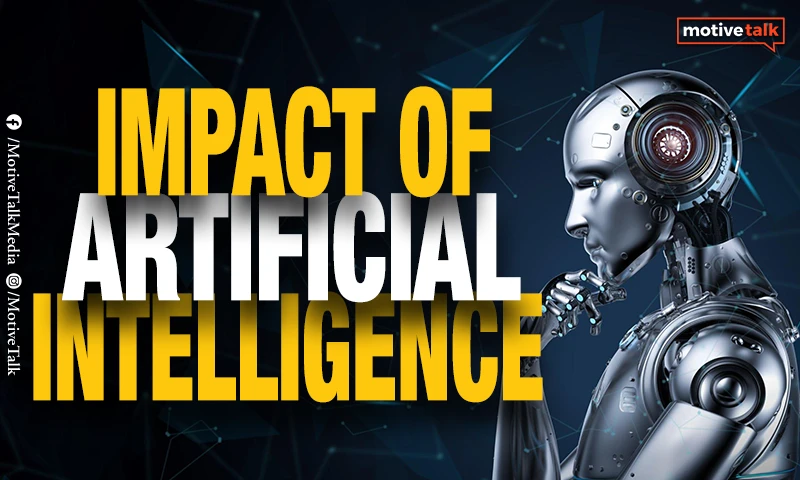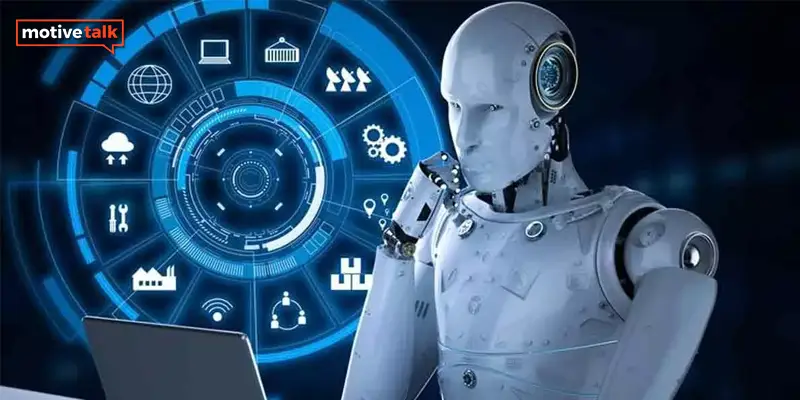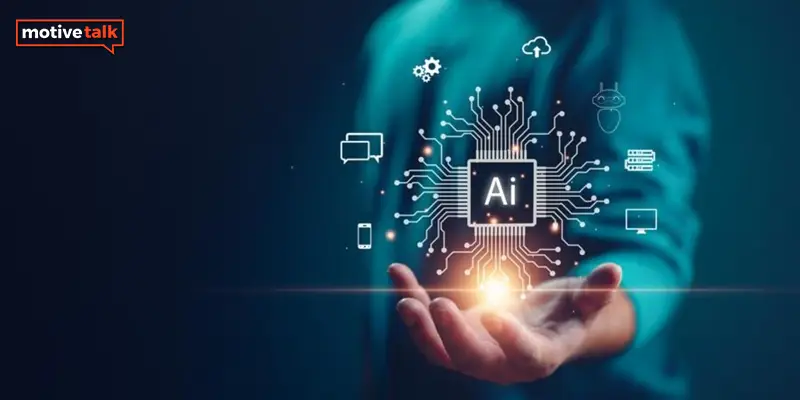Tech
The Powerful Impact of Artificial Intelligence (AI) in 2023

Unlocking the Power of Artificial Intelligence: Impact Of Artificial Intelligence (AI)
In today’s digital age, artificial intelligence (AI) has emerged as a powerful force driving change in every aspect of our lives. From smart homes to virtual assistants, AI is revolutionizing the way we interact with technology and transforming the world around us.
As we unlock the potential of AI, we find ourselves at the forefront of a new era where machines not only think like humans but also become our trusted companions.
Understanding The Different Types Of AI
Artificial intelligence can be categorized into three main types: narrow AI, general AI, and superintelligent AI.
Narrow AI refers to systems that are designed to perform specific tasks, such as voice recognition or image classification. These systems excel in their specific domain but cannot generalize beyond their designated tasks.
General AI, on the other hand, possesses the ability to understand and learn any intellectual task that a human being can do. Superintelligent AI goes a step further, surpassing human intelligence and having the ability to outperform humans in virtually every task.
AI technology is built upon machine learning, a subset of AI that focuses on enabling machines to learn from data and improve their performance over time. Machine learning algorithms, such as neural networks, support vector machines, and decision trees, play a crucial role in training AI systems to recognize patterns, make predictions, and take autonomous actions.
The Impact Of Artificial Intelligence On Various Industries
The impact of AI is being felt across all industries, from healthcare to finance, and transportation to entertainment. In healthcare, AI is improving diagnosis accuracy, assisting in surgical procedures, and enabling personalized treatment plans. Machine learning algorithms can analyze medical images, detect patterns, and identify potential diseases with high accuracy, assisting doctors in making more informed decisions and reducing medical errors.
In the financial sector, AI-powered algorithms are revolutionizing trading strategies, fraud detection, and risk assessment. These algorithms can process vast amounts of financial data in real-time, identifying trends, predicting market movements, and automating trading decisions. AI is also transforming customer service, with chatbots and virtual assistants providing instant support and personalized recommendations to customers, enhancing the overall customer experience.
Transportation is another industry experiencing the impact of AI. Self-driving cars are becoming a reality, with AI systems enabling vehicles to perceive their surroundings, make informed decisions, and navigate safely. This technology has the potential to reduce accidents, increase efficiency, and transform the way we travel.
AI in Everyday Life: Examples Of Smart Technology
AI is increasingly becoming a part of our everyday lives, seamlessly integrated into various smart technologies. Smart homes, for example, utilize AI to automate tasks and enhance convenience. Voice-controlled assistants like Amazon’s Alexa and Google Assistant can control lights, thermostats, and security systems, responding to voice commands and adapting to individual preferences.
Smartphones are also leveraging AI capabilities to improve user experience. AI-powered virtual assistants, such as Apple’s Siri and Google’s Assistant, can perform tasks like setting reminders, sending messages, and providing information based on user queries. These virtual assistants learn from user interactions, continuously improving their understanding and accuracy.
AI is also present in wearable devices, such as smartwatches and fitness trackers. These devices use AI algorithms to track and analyze health-related data, providing insights into sleep patterns, heart rate, and activity levels. They can even provide personalized recommendations for improving overall well-being.
Benefits Of AI In Healthcare
The healthcare industry stands to benefit significantly from the advancements in AI technology. AI-powered systems have the potential to revolutionize patient care, improve diagnosis accuracy, and enable personalized treatment plans.
One of the key benefits of AI in healthcare is its ability to analyze medical images and detect abnormalities with high accuracy. Machine learning algorithms can process large volumes of medical images, such as X-rays and MRIs, and identify patterns that may indicate potential diseases. This can assist radiologists in making more accurate diagnoses and reduce the chances of misinterpretation.
AI can also help in predicting and preventing diseases. By analyzing patient data, including medical history, genetics, and lifestyle factors, AI systems can identify individuals at higher risk of developing certain conditions. This enables healthcare providers to intervene early, implement preventive measures, and potentially save lives.
AI In Business: Improving Efficiency And Productivity
AI has the potential to revolutionize the way businesses operate, improving efficiency, and increasing productivity. From automating mundane tasks to enabling data-driven decision-making, AI is transforming various aspects of business operations
One area where AI is making a significant impact is in customer service. Chatbots and virtual assistants are becoming increasingly sophisticated, capable of understanding natural language queries and providing personalized responses. These AI-powered systems can handle customer inquiries, resolve issues, and even assist in making purchasing decisions. By automating customer support, businesses can reduce response times, improve customer satisfaction, and free up human agents to focus on more complex tasks.
AI is also revolutionizing data analysis and decision-making processes. Machine learning algorithms can analyze vast amounts of data, identify patterns, and extract valuable insights. This enables businesses to make data-driven decisions, optimize operations, and identify new opportunities. AI-powered predictive analytics can forecast market trends, customer behavior, and demand patterns, helping businesses stay ahead of the competition.
The Ethical Considerations Of AI (Artificial Intelligence)
As AI continues to advance, it is crucial to address the ethical considerations associated with its use. AI systems, particularly those powered by machine learning, learn from vast amounts of data, including potentially biased information. This raises concerns about fairness and discrimination in decision-making.
For example, AI algorithms used in hiring processes may inadvertently perpetuate existing biases, leading to unfair outcomes. Similarly, AI systems used in criminal justice systems may disproportionately target certain demographics due to biased training data. It is essential to ensure that AI systems are developed and trained on diverse and representative datasets to mitigate the risk of perpetuating discrimination.
Privacy is another ethical concern related to AI. AI systems often rely on large amounts of personal data to provide personalized experiences and recommendations. It is crucial to establish robust privacy frameworks to protect individuals’ data and ensure transparency in how their data is being used.
Overcoming Challenges In Implementing Artificial Intelligence (AI)
While the potential of AI is immense, there are several challenges to overcome in implementing AI effectively. One challenge is the availability of high-quality and diverse datasets. AI systems rely on data to learn and make predictions. Ensuring that datasets are representative, unbiased, and comprehensive is crucial to avoid skewed outcomes and improve generalization.
Another challenge is the need for AI systems to be explainable and transparent. As AI algorithms become more complex, it becomes difficult to understand the decision-making process behind their predictions. This lack of transparency raises concerns about accountability and trust. Developing methods to interpret and explain AI decisions is crucial for gaining user trust and ensuring the responsible deployment of AI systems.
Ethical considerations also pose challenges in implementing AI. As discussed earlier, biases in training data can lead to unfair outcomes. Addressing these biases and ensuring fairness in AI systems requires careful monitoring, evaluation, and continuous improvement.
The Future Of AI: Emerging Trends And Possibilities
As AI continues to advance, several emerging trends and possibilities are shaping its future. One such trend is the convergence of AI with other transformative technologies, such as the Internet of Things (IoT) and blockchain. The combination of AI and IoT enables smart devices to communicate and share data, leading to a more connected and intelligent ecosystem. AI-powered blockchain solutions can enhance security, transparency, and trust in various domains, including supply chain management and healthcare.
Another emerging trend is the democratization of AI. As AI technology becomes more accessible, individuals and small businesses can leverage its capabilities to solve complex problems and drive innovation. Open-source AI frameworks and online learning platforms are empowering individuals to learn and experiment with AI algorithms, fostering a culture of innovation and collaboration.
Advancements in natural language processing are also enabling more sophisticated human-computer interactions. AI-powered virtual assistants are becoming more conversational, understanding context and intent, and providing more accurate responses. This trend has the potential to revolutionize the way we interact with technology, making it more intuitive and natural.
Conclusion: Embracing The Potential Of Artificial Intelligence (AI)
As we unlock the power of artificial intelligence, we are entering a new era where machines not only think like humans but also become our trusted companions. AI is revolutionizing every aspect of our lives, from healthcare to business operations, and transforming the way we interact with technology.
Understanding the different types of AI, its impact on various industries, and the ethical considerations associated with its use is crucial for harnessing the full potential of AI. By embracing AI and addressing the challenges, we can unlock its transformative power and create a future where AI technology enhances our lives, improves productivity, and fosters innovation.
As we navigate the complexities of AI implementation, collaboration, and open dialogue between stakeholders are essential. By working together, we can shape the future of AI in a way that is ethical, responsible, and beneficial to all. The possibilities are endless, and the potential for positive change is immense. It is up to us to embrace the power of AI and steer its path toward a brighter future.
You may also read
-
Who is3 months ago
Who Is Fauzia Mubarak Ali? Famous Cat Stevens Wife & Their Children (Update: Jan 2024)
-
Comics9 months ago
Best Shrek Quotes About Life From The Shrek Series
-
Miscellaneous2 years ago
Lone Wolf Quotes – That Will Trigger Your Soul and Mind
-
Miscellaneous7 months ago
Warrior Quotes – That Will Make You More Stronger
-
Miscellaneous11 months ago
Top 27 Letterkenny Quotes – That Will Make Anyone Laugh
-
Super Hero2 years ago
Captain America Quotes – All Are Ultimate Leadership Quotes
-
Politicians2 years ago
Most Powerful Vladimir Putin Quotes – That Will Blow Your Mind
-
Miscellaneous2 years ago
Dalai Lama Quotes – That Will Change Your Values and Vision





























